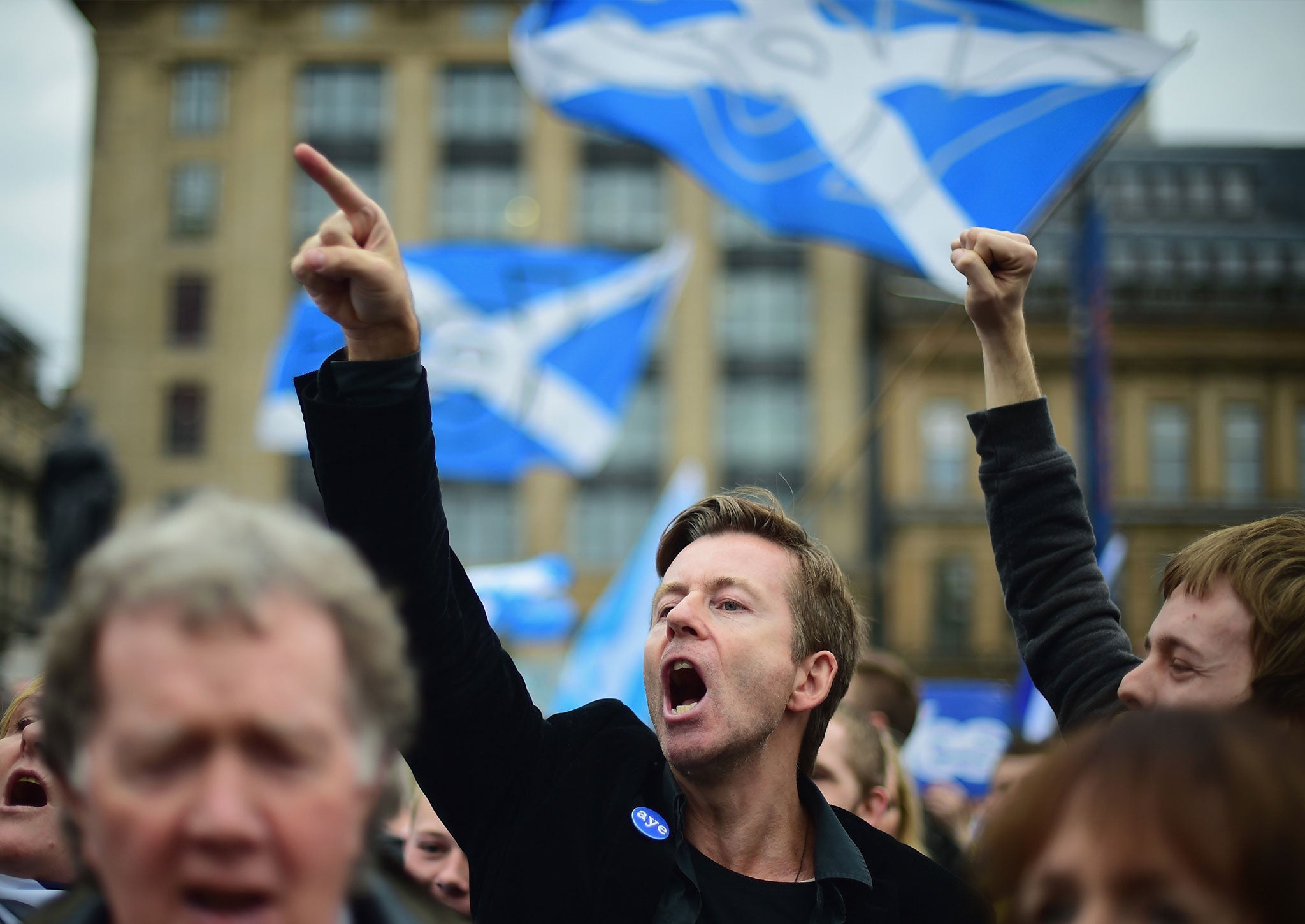While England goes back to taking the union for granted, Scotland remains at war
Westminster's broken vows have only encouraged the 45 per cent of the Scottish population who voted Yes in September

As you might expect, this year's St Andrew's day had particular resonance, especially for those whose passions were stirred by September's referendum. Getting in on the act, David Cameron made a surprisingly emotive speech, expressing how pleased he is that Scotland is still part of the union. It might, however, not be here to stay.
Scotland voted "No" on September 18. True, it was not the comfortably emphatic "No" predicted a year earlier, but it was still a "No" and at 53.80 per cent it was enough to allay the worries of Westminster, and make them wonder why a week earlier they had been so afraid.
Only a week after the result, as well as being overheard saying that the Queen had "purred down the line" over the Referendum result, David Cameron joked about suing the polling companies for his stomach ulcers. The message was clear: It was a worry which had now been allayed. Less than a week later it was all in the past.
The problem is, though, it isn’t all in the past, and Westminster’s complacency now the drama is over is quite dangerous. Before the Referendum I wrote about being on the fence, and about how sad I felt seeing my adopted country divided. I didn’t realise then how deep the divisions were, and how they would continue.
On the morning of the September 19 I cried with fatigue. I hadn’t slept for three days and the adrenaline sustaining me suddenly disappeared. What set me off was a deflated ‘Yes’ balloon on the roadside (pictured above).
This weekend the 45+ (the name the "Yes" supporters have adopted reflecting the fact that 45 per cent voted Yes) held a rally outside the parliament. Many of them also cried on the morning of the referendum with the bitterness of defeat. One speaker at the rally told how his Grandmother cried when she saw David Cameron on TV saying that the question of Independence was decided for a generation. "I promised her then,’ he said ‘Grandma, it’s not over, it’s not going to be over."
Ironically the promises made by Gordon Brown, who seemed at the time a saviour to the ‘Better Together’ campaign, may in the long term have damaged the union he so sought to rescue. The anger that we may not get Devo-Max has led to calls for another referendum – with criticisms that the recent Smith Commission did not go far enough.
Had these promises not been made, a "No" victory – even with a smaller majority – would have felt more credible, and easier I think for "Yes" supporters to accept. As it is, there is a feeling of anger here, especially at Westminster’s seeming indifference to Scotland now the immediate risk is over.
Among those at the 45+ rally many believe there will be another referendum, either in 2017 or 2020. With the SNP gaining support from unsatisfied Labour voters – the 45+ have especial vitriol for Jim Murphy and Gordon Brown – this may well happen.

Join our commenting forum
Join thought-provoking conversations, follow other Independent readers and see their replies